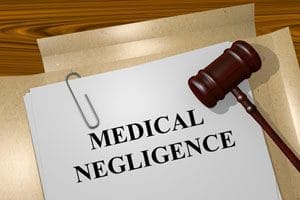There is no doubt that the work done by a doctor or nurse is not easy. However, this does not excuse any medical practitioner from liability when he or she disrupts the life of a patient or makes it difficult. Since medical employees in the UK are employees of the National Health Service (NHS) or private health facilities, you can institute legal proceedings against the institutions in the unfortunate event that their doctors or nurses mistreat you when under their care. Medical negligence takes many forms, and these include failure to make accurate diagnoses, unindicated surgery or intervention, lack of proper monitor and response, among others.
Help from medical negligence solicitors is needed in such instances since proving fault in these types of cases is never easy. There are three aspects that your legal representatives must establish if you are to succeed in a medical malpractice claim; causation, negligence, and damages.
Negligence
The solicitor you contract must prove that the medical practitioner or health facility acted negligently when handling your treatment. It will be necessary to determine that the defendant’s actions fell below the standards of medical care that practitioners in the field have to abide by. Was there a medical condition that was not diagnosed appropriately? Your solicitor has to prove beyond reasonable doubt that indeed there were mistakes made in your treatment or that the medication administered was out of date.
Understand that no professional solicitor files a case before obtaining expert details from a medical expert. The medical expert contacted reviews the medical records presented to them. Before a conclusive report is given, the medical expert examines the complainant. The expert assessing the patient should determine if there was negligence and that is what forms the basis of the claim.
Causation
Your legal representative must prove that the damages, loss, or injury suffered are directly linked to the consequences of the medical negligence. Causation is a very contentious issue in medical malpractice claims and calls for a thorough investigation. This is why your solicitor must have enough proof to demonstrate that the injuries would have been avoided had the medical practitioner given appropriate treatment.
Actual cause and proximate cause are the two types of causation. The former is where your solicitor proves that your injuries were a foreseeable result of the medical practitioner’s actions. Proximate cause is where your solicitor proves that the physician’s actions were the legal cause of your injury. The plaintiff may try to argue that the cause of injury is your pre-existing condition and not a result of medical malpractice. Due to the complexity of the subject, your solicitor may look for expert testimony to support causation. The expert testimony breaks down the applicable standards of care and gives an opinion on whether the practitioner was in line with the standards or not.
Damages
The contracted solicitor determines the amount of compensation the plaintiff should receive. For the NHS to be sued, the amount to ask in damages will depend on various factors. For example, your solicitor delves into the suffering incurred, financial loss, and pain. However, there must be proof that the malpractice caused further harm to the plaintiff. Brain damage after the operation or any other medical condition that got worse after treatment must be proved.
Your solicitor works with two types of damages when evaluating your case. That’s economic and noneconomic. Economic is where monies are given as compensation for monetary expenses and loss that the plaintiff incurred. Noneconomic are the monies awarded as compensation for injuries and non-monetary losses suffered by the plaintiff. Your attorney also considers the future costs including your impending lost income where as a result of the malpractice, you will no longer earn as much as you would otherwise have been able to. Before a claim is filed against HNS, a report on damages must first be prepared by a medical expert.
When any practitioner entrusted with your care fails to perform their professional duties adequately, you indeed have a case for medical negligence and can file a claim against the NHS or private medical facility. Medical malpractice litigation is complex, technical, and rigorously defended, making it tough to prove. This means that it is vital to work with a high profile medical solicitor to navigate and win the claim within the limitation periods.




